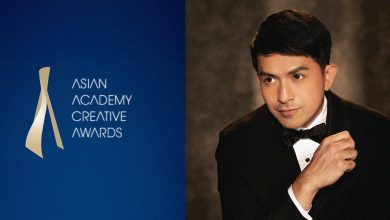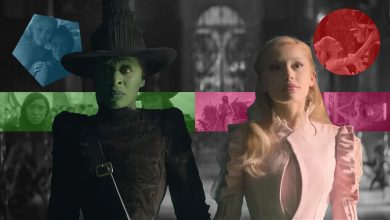MANILA, PHILIPPINES — From 1999 until 2007, The Sopranos was a juggernaut on television. The story of New Jersey gangster Tony Soprano, his family, his associates, his psychiatrist, and their relationships with each other drew monster ratings for HBO while winning 21 Primetime Emmy Awards, five Golden Globe Awards, and accolades from an audience that has only grown since it has been off the air. After years of refusing to go back to his creation, showrunner David Chase finally relented, this time telling a story focused on the mysterious Dickie Moltisanti.
In 1967, “Gentleman Dick” or “Dickie” Moltisanti (Alessandro Nivola) welcomes back home to Newark his father, “Hollywood Dick” Moltisanti (Ray Liotta) and his new, young Italian wife Giussepina (Michela de Rossi). Joining Dickie is his pseudo-nephew, Anthony Soprano (William Ludwig). Dickie is part of the DiMeo crime family, and it is a time of unrest in New Jersey.
Even as the 1967 Newark riots begin, one of Dickie’s associates, Harold McBrayer (Leslie Odom, Jr.) is trying to build a life for himself despite the blatant racism he faces. Meanwhile, Anthony witnesses his dad Johnny Soprano (Jon Bernthal) and uncle, Junior (Corey Stoll) get arrested at a carnival while trying to get money from someone who owed the DiMeos money. When a warrant is issued for Harold’s arrest after he murdered a person trying to avoid paying him he moves to North Carolina with $500 from Dickie.
After getting into a fight with his dad after the older Moltisanti pushed Giuseppina down a flight of stairs, Dickie ends up killing his father. To hide his crime, Dickie burns down a building they own with his father’s body to blame the riots for the death. Without Hollywood Dick, Dickie begins a relationship with Giuseppina as his “goomah.”
Four years pass before Johnny is released from prison. At his welcome home party, Dickie and wife Joanne (Gabriella Piazza) introduce their newborn son Christopher to the guests, including teenage Anthony (Michael Gandolfini). Returning from North Carolina, Harold starts his own crime operation in Newark with other black men. This places Harold at odds with his old boss in Dickie.
Years of exposure to crime have begun to affect Anthony’s decisions as he steals answers for a geometry exam. When the school guidance counselor tells his mother, Livia (Vera Farmiga) that the boy has a high IQ and the personality traits of a leader, she brushes it off and keeps antagonizing her own son.
Over the course of 86 episodes, Chase was able to explore so many things in The Sopranos that has consistently earned it honors as one of the best television shows ever made. The characters have become iconic and the actors that played them beloved. With the advent of digital media and streaming services, an even bigger audience worldwide has gotten to know Tony, wife Carmela, their kids, fellow gangsters Silvio, Paulie Walnuts, Big Pussy, Johnny Sack, psychiatrist Dr. Melfi, and their extended families.
Therein lies the dilemma faced by veteran TV director Alan Taylor and The Many Saints of Newark. The “source material” is so beloved, analyzed and over-analyzed since it was airing, that its fans wanted all kinds of things in this story. For Chase, one of his reasons for agreeing to this film was because he got to explore someone who was hardly mentioned in the show but whose shadow loomed large over the characters of Tony and Christopher.
Even as Michael Imperioli narrated as a disembodied Christopher seemingly speaking from beyond the grave, his relationship with Tony echoes what a young Tony had with his father Dickie. The show had long mentioned that fact, and Nivola and Gandolfini get to play that, if only for a few scenes.
Nivola has largely avoided big Hollywood roles in favor of smaller parts in film, thus it was surprising that he was cast as the main protagonist here. After supposedly watching performances of Liotta and Robert de Niro in their own turns as gangsters in film, Nivola captures the rage and anger that we’ve come to expect from James Gandolfini and Imperioli in The Sopranos. Even as he loses his temper in confronting his father in one scene and Giuseppina in another, he also shows sympathy for his imprisoned uncle Sally (also Liotta) and filial ove for Tony.
Much has been said about the younger Gandolfini taking on the challenge of playing a younger version of his father’s iconic character but Michael is just fine here. Portraying a younger, less confident, more awkward version of the capo that eventually rules New Jersey allows Michael to not exactly copy his father.
What will undoubtedly delight fans of The Sopranos are the performances of Stoll, Farmiga, John Magaro as young Silvio, and other actors playing younger characters from the show. It would be easy for all of them to merely perform parodies or caricatures of these characters but instead, they genuinely pass off as the characters from 30 years before we meet them. Stoll, Farmiga, and Magaro in particular capture their individual voices, movements, and nuances so perfectly that many fans likely would not mind seeing them play these characters again, should Chase allow it.








